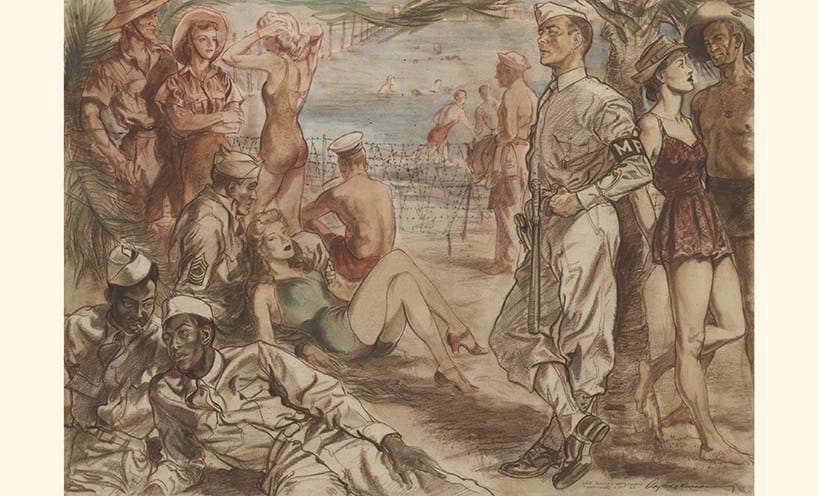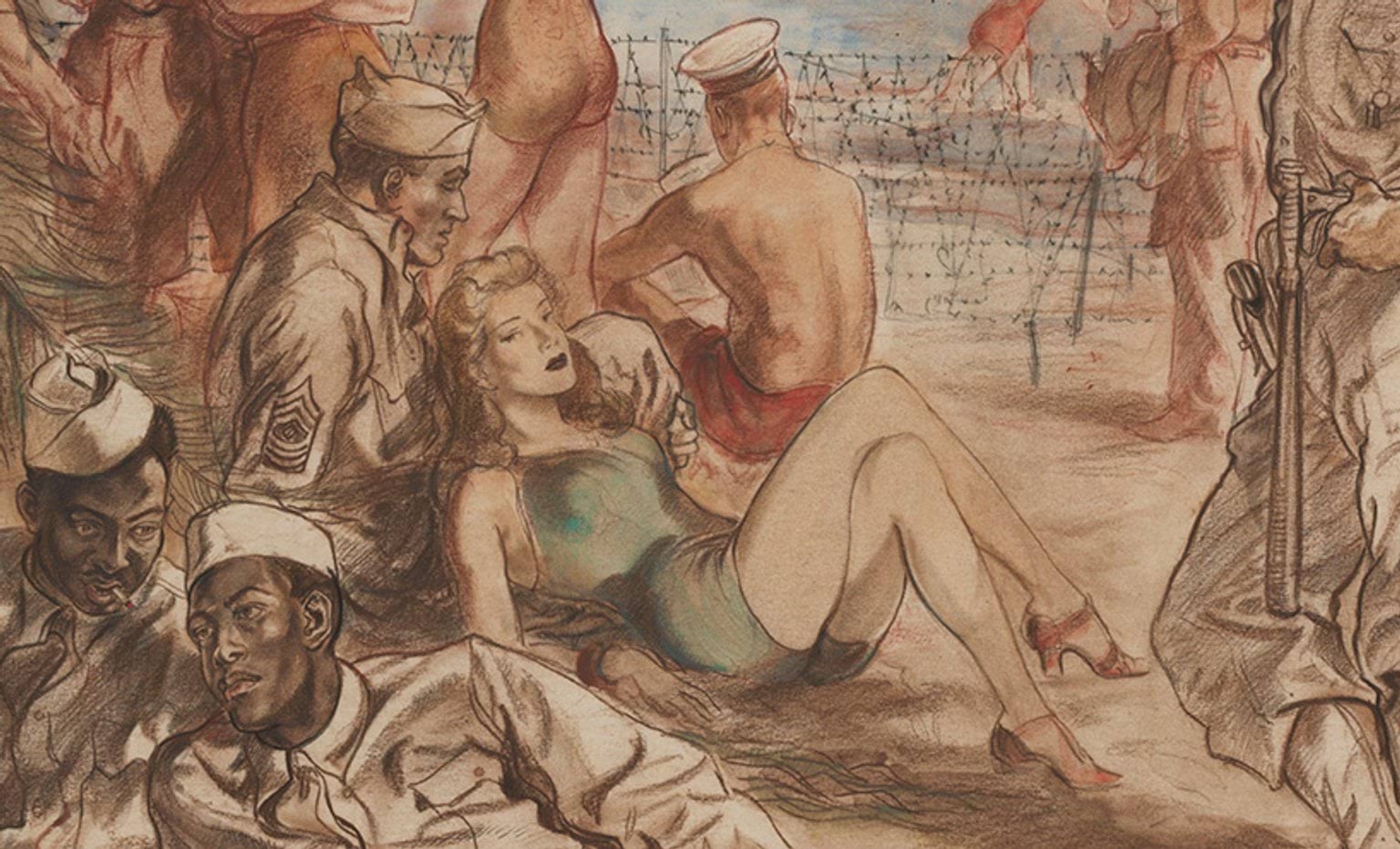Australian and American military authorities widely discriminated against the 8,000 African American troops serving in Australia during the Second World War (1939–45). A noxious stereotype that the men were oversexed and irresistible to women inspired local councils across Australia to establish exclusive clubs and dancehalls for Black Americans. Social pressure prevented all but the most determined white women from attending. Queensland police, meanwhile, barred Aboriginal and Torres Strait and Pacific Islander women from meeting the Americans after dances so as to keep wider discussions of Civil Rights between them to a minimum.
Younger, working-class white Australians tended to be more welcoming of African American GIs. Davis Lee, reported in the Baltimore Afro-American in April 1942 that when United States military police tried to bar black troops from attending a mixed dance, Australian soldiers ‘forced all the girls to leave the hall.’ In Sydney, Jazz, Jive and Boogie-Woogie music, together with Black American modes of speech and dress, inspired a raucous new Australian youth subculture—the Bodgies (males) and Widgies (females) which would extend after the war until the 1970s.
ON LOAN COURTESY OF THE AUSTRALIAN WAR MEMORIAL ART21350
Updated


